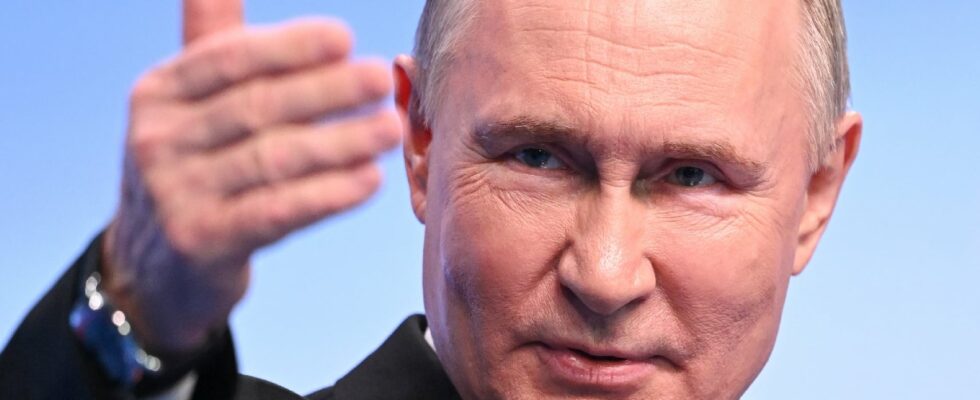In the small Russian village of Darino, near the border, the tricolor flag of the Russian Federation flies on the facade of the school. A few seconds later, a Ukrainian soldier who participated in the capture of the village takes it down and throws it to the ground. This scene, captured on video, still seemed totally unthinkable to the Russian general staff just over a week ago. However, it has been repeated in several villages taken by Ukrainian forces since the start of their rapid incursion into the Kursk region on August 6.
Six days later, on the 12th, Russian authorities admitted to having lost 28 localities and ordered the evacuation of 121,000 civilians in the area, while at the same time, the Ukrainian army claimed to have taken control of 74 localities. An unprecedented snub for Vladimir Putin, whose forces had never been confronted with an incursion of such magnitude on their territory. “This is a new fiasco with an extremely strong symbolic dimension since this time it is happening directly in Russia,” adds General (2S) Jérôme Pellistrandi, editor-in-chief of the National Defense ReviewThe failure of the Russian command is to have continued to underestimate Ukraine’s ability to surprise.”
Redirecting the War Effort
While several smaller raids had already been carried out in the Belgorod and Kursk regions by Russian units fighting for Ukraine in 2023 and 2024 – without major success – this is the first offensive by a foreign army in Russia since the Second World War. In the short term, the opening of this new front could disrupt the plans of the Russian command, whose forces have been on the offensive for several months in eastern Ukraine, and are advancing continuously at the cost of heavy losses. “This partly reshuffles the cards on the land front,” notes General Pellistrandi. “The Russians now need to send forces urgently to protect the area, even if it means withdrawing them to the Donbass front where their main effort is located.”
A situation that the Ukrainians experienced last May when the Russians reopened a new front in the Kharkiv region, with the stated objective of creating “a buffer zone” to protect the Belgorod Oblast from enemy bombardments. “The Ukrainian general staff had been forced to draw down part of the reserves from the main front to reinforce the north of the country,” recalls General Nicolas Richoux, former commander of the 7th Armored Brigade. “We are going to witness the same process but in the opposite direction: which will inevitably slow down the major Russian offensives in the east of the country, particularly around Chassiv Iar.”
Anxious to regain control in the region, Vladimir Putin himself promised on August 12 to “expel the enemy”, assuring that this is “the main task of the Ministry of Defense”. At a time when Ukrainian forces have begun to dig trenches in the region to fortify their positions, uncertainty still prevails as to the outcome of the fighting in the area in the coming weeks.
Dilution of forces
In the longer term, the surprise action of the Ukrainian forces could force the Russian command to devote more resources to protecting the 700 kilometers of border separating their country from northern Ukraine. “Securing such a large area will require tens of thousands of men,” points out General Richoux. “But it will also require sending equipment, building rear bases and setting up new logistics flows.” So many additional resources that will not be able to be used in Ukraine by a Russian army exhausted by almost two and a half years of war.
The difficulty for Russian troops to gain ground in Ukraine could only be greater. “An offensive consists of concentrating resources in a given place, in order to be able to break through the enemy’s defenses,” continues General Richoux. “But the more you dilute your resources, by dispersing them in different areas, the less you will be able to break through.” A possible respite for Ukrainian forces after a difficult start to the year marked by a shortage of ammunition and increasing pressure from the Russian army.
On the diplomatic front, Ukraine indicated on August 13 that it did not want to “annex” the conquered territories, and called on Moscow to accept “a just peace”. The day before, the head of the Kremlin had accused kyiv of carrying out this operation to be in a better “position” in the event of talks. In fact, if the Ukrainian forces manage to hold these territories in the long term, they will have real leverage for negotiation.
.
